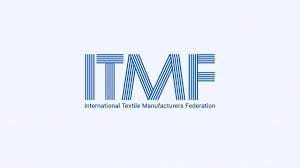ITMF demands brands and retailers to act responsibly and sustainably
The Corona-pandemic has revealed how extended the textile value chain is from producing fibres to the finished consumer products offered by brands and retailers around the world. Fibres can be produced in one country, yarns spun in another; fabrics are woven or knitted yet in another country before the final garment is sewn and shipped across continents.
The textile value chain is only as strong as the weakest link in it. It is important to realize that in a situation of global demand and supply disruptions, cooperation and dialogue are paramount for the entire supply chain. Our industry is facing demand shocks due to lockdowns around the world, which have posed enormous challenges to the retail industry. Passing the loss and pain to suppliers by cancelling orders cannot be the answer. To the contrary, cancellations will create even more problems by weakening the supply chain further.
Textile and apparel companies are willing to do their utmost part to overcome this demand shock by delaying shipments or deferring payments, when necessary. But this has to be within reasonable limits. It is imperative that brands and retailers and their suppliers cooperate closely and look for solutions that support each other.
ITMF and its national textile and apparel associations represent hundreds of thousands of companies and millions of workers across the globe. These companies and workers cannot absorb the burden alone. ITMF’s recent Corona-Surveys have revealed that orders have plummeted by more than 40% globally and that turnover in 2020 is expected to be 33% lower than in 2019. The most pressing issue for most companies is liquidity. Therefore, it is essential that brands and retailers find solutions with their suppliers that allow them to pay their workers and avoid massive layoffs.
Responsible sourcing practices by brands and retailers are critical preconditions for socially compliant and eco-friendly production. Sustainability is not a one-way street; it can only be achieved, if stakeholders along the supply chain respect and treat each other responsibly.
ITMF was founded in 1904 and its members are associations and companies in the fibre, textile, apparel, home textile, textile machinery and textile chemical industry in almost 60 countries around the world, that are employing directly and indirectly millions of people.

